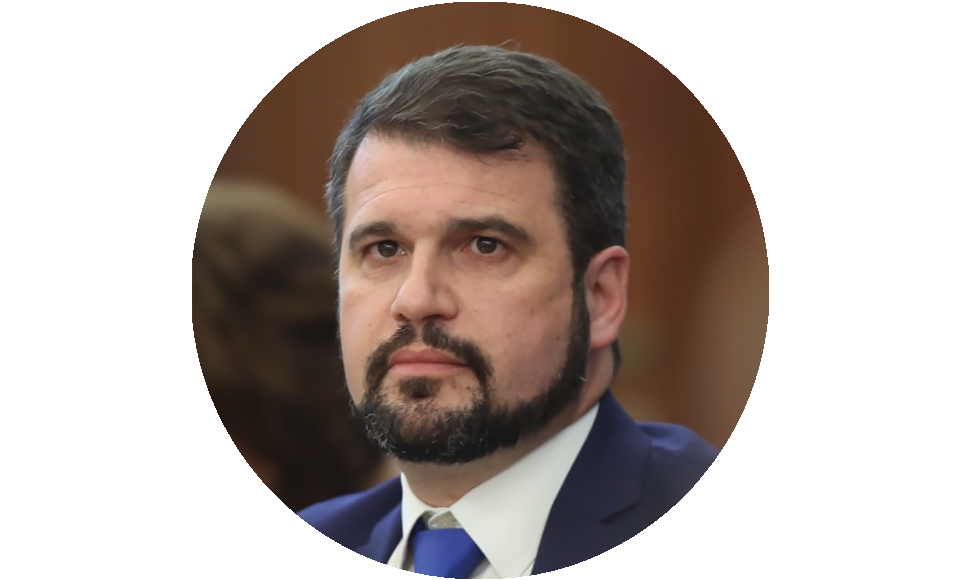João Paulo Correia, Socialist MP
One year ago, to justify the PSD voting against the state budget for 2021, its leader, Rui Rio, prophesised that the NHS would be unable to meet the demands of the pandemic, there would later have to be a corrective budget, unemployment would rise and public investment fall. Rui Rio was wrong. BE betted it would be a horrible year and consequently see an explosion in social discontent. The PSD and BE lost their grip on factual reality.
The conjunctural control over the pandemic has been secured by the success of the vaccination campaign. Portugal was the first country worldwide to reach the goal of getting 85% of its population fully vaccinated, which has multiplied the confidence prevailing among economic actors.
The resilience of the NHS, employment and income protection and support for companies have been decisive in the turning of this page. The second quarter GDP figures and the most recent employment market figures confirm that the economic recovery is under way.
The forecasts of the government point to accumulated GDP growth in 2021/22 of between 10/10.5%, which outstrips the 8.4% fall in 2020.
The growth rate of 5.5% forecast for next year will enable our economy to reach its pre-pandemic level by the end of the first quarter. This also means that the Portuguese economy advances at a rate above that of both the Eurozone and the EU. This therefore represents a return to the path of convergence with the EU, re-joined in 2017 and broken off due to the impact of the pandemic crisis.
The upwards revision to GDP and the 3.2% target for the state spending deficit endow the margin for government to rescale and intensify the political options convergent with the agendas of the usual parliamentary partners.
Again strengthening the National Health Service, more investment, boosting the disposable income of the middle classes, families with children and young adults, combatting poverty among children and the elderly and support for micro, small and medium sized companies are among the areas of greatest fiscal and budgetary significance.
The response capacity of the NHS to the pandemic stemmed from the significant increase in the number of professionals. The NHS today has over 27,000 professionals more than in 2015. A trajectory that has to remain as a budgetary priority alongside investments in infrastructures and complementary means of diagnosis and treatment.
Economic recovery depends above all on the growth in investment. The data for the current year are encouraging. Public investment surged by 30% in the first quarter, above that forecast in the annual state budget. The stock of foreign direct investment is expected to close the year at the record level of 150 billion euros with the majority for projects in digital economy and the automobile, renewables and aeronautics sectors.
The 2022 state budget contains a complementary investment framework, the Recovery and Resilience Plan, the overbooking of the PT2020 and the launching of PT2030 programs. The commitment of national funds from the central government and municipalities for further raising public investment shall continue their upwards path. In terms of support for companies, there is the repositioning of the fiscal incentive for investments. Companies may deduct a proportion of the investment made directly against their IRC liabilities whenever not distributing profits or reducing their levels of employment.
Boosting available household income takes place through the fiscal system with a decrease in taxes on labour, raising wages in the state sector, including promotions and career progression, and raising the lowest pensions.
The subdivision of the IRS scales and the increase in the deductible amount for the second and successive children will lighten the fiscal burden on over 30% of households.
The IRS Jovem program is to be expanded from 3 to 5 years providing for 30% less IRS taxation in the first two years, 20% in the following two years before a 10% reduction in the fifth year. Such support makes a difference in the early years of professional life.
Child allowance is to rise in another step forward in combatting child poverty, specifically targeting children who live in households with incomes falling into the lower taxation scales.
The end of Advance Account Payments represents excellent news for SMEs: a relief for their treasuries. This is a type of withholding tax and has long been criticised as effectively imposing a “compressive roll” on the prospects for thousands of companies.
The general framework of the 2022 state budget provides a leading role to the agendas of the government’s usual partners. There are the advances that sustain the viability of the budget and demand a deeper and even more pernicious understanding of the outcome of the 26 September elections.
Local government elections are local disputes with some “national voting”. And, they inevitably end up influencing the future of party leaders. And these latest elections have also left some marks on the traditional centre-right.
The PS won according to every criteria of analysis. The PSD grew only timidly even if winning Lisbon and Coimbra. Rui Rio and Francisco Rodrigues dos Santos gained some breathing space in their already looming internal disputes. However, this space will not prove sufficient to dismiss this internal discontent. Rather than being strengthened by the local council results, both arrive at the state budget process with their hands tied by their respective leadership challenges.
In turn, the BE was one of the clear losers on election night. It slumped in terms of its number of votes. Perhaps there remains resentment over its vote against the 2021 state budget. In turn, the PCP avoided the catastrophic outcome of 2017.
The political context, the economic framework and the general lines proposed by the government ensure the viability of the 2022 state budget.







